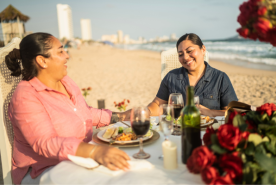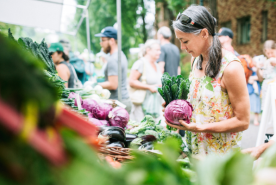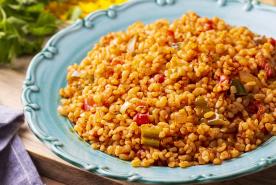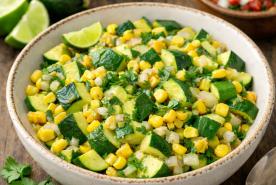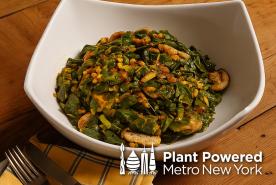Last updated: January 02, 2023
Medically reviewed by: NKF Patient Education Team
Plant-based milks from oats, soy, rice, nuts, and seeds are popular alternatives to dairy milk and are easy to find at the grocery store.
There are a variety of milk alternatives on the market made from oats, soy, rice, nuts, and seeds. Plant-based milks are becoming more popular and are common at the grocery store.
Why are milk alternatives a superfood?
- Milk alternatives can be lower in phosphorus and potassium than cow’s milk unless they have additives.
- Soy milk is high in protein.
- Almond milk is a good source of vitamin E and antioxidants.
- Nut and seed-based milks contain monounsaturated and polyunsaturated fats, which benefit heart health.
- Oat milk has more riboflavin (vitamin B2) and vitamin B12 than low-fat cow’s milk.
- Plant-based milks are a great alternative if you are lactose-intolerant or have high cholesterol levels.
- There are also yogurt, frozen desserts, and cheeses that are made from plant-based milks.
Milk alternatives and kidney disease
Milk alternatives have varying amounts of potassium and phosphorus. The type and how much you may have each day will depend on your stage of kidney disease or the type of dialysis you receive. Use the chart below and ask your kidney dietitian how to choose milk alternatives that will fit your kidney diet plan.
Chronic kidney disease (CKD) and transplant
Most people with CKD or kidney transplant do not have to limit milk alternatives due to potassium or phosphorus unless directed by their kidney dietitian. Find a kidney dietitian.
Hemodialysis (3 days per week)
Potassium and phosphorus can be a concern for some milk alternatives depending on your lab results. Ask your kidney dietitian how much and which type of plant-based milk is best for you.
Daily home and nocturnal hemodialysis or peritoneal dialysis
These types of dialysis can remove more potassium. You may consume milk alternatives for more dietary potassium if they do not have phosphorus additives. If you are on peritoneal dialysis and need more protein, soymilk is a protein-rich alternative.
Kidney stones
Soy, almond, and cashew milks have a high oxalate content and may be restricted if you have a history of calcium oxalate kidney stones. Consult your doctor or kidney dietitian for more information on oxalate-containing foods.
Common plant-based milk brands
Serving size: 1 cup
| Brand | Calories | Protein (g) | Phosphorus (mg) | Potassium (mg) |
|---|---|---|---|---|
| Silk&® Original Soy Milk | 110 | 8 | 220 | 380 |
| Rice DREAM™ Enriched Original Rice Milk | 120 | 0 | 150 | 30 |
| Silk® Unsweet Original Coconutmilk | 40 | 0 | N/A* | 310 |
| Blue Diamond Almond Breeze® Original Almondmilk | 60 | 1 | 20 | 170 |
| Elmhurst® Milked Cashews Unsweet Cashewmilk | 130 | 10 | N/A* | 145 |
| Oatly Original Oatmilk (Chilled) | 120 | 3 | 270* | 390 |
Source: Manufacturers website
*Contains added phosphates. If consuming this item, take phosphate binder(s) if prescribed by your doctor.Recipe
Sweet strawberry-pineapple plant-based smoothie
Servings: 2
Serving size: 8 oz
Ingredients
- ¾ cup almond milk or soymilk yogurt
- ½ cup plant-based milk (e.g., soy, almond, cashew). Use less than ½ cup milk if you prefer a thicker smoothie
- ½ cup frozen or fresh pineapple chunks
- ½ cup frozen or fresh strawberries, stems removed
- 3-4 ice cubes
Directions
- Place all ingredients in an electric blender.
- Blend on high speed until all ingredients blend to liquid consistency.
- Pour smoothie into a tall glass and enjoy!
Nutrition Facts
Per 8 oz serving, prepared with almond milk and vanilla almond milk yogurt
Calories: 127
Total fat: 8 g
Saturated fat: 0 g
Total carbohydrates: 11 g
Protein: 3 g
Fiber: 2 g
Potassium: 251 mg
Phosphorus: 100 mg*
Calcium: 190 mg
Sodium: 90 mg
*Phosphorus content of Silk® Almondmilk Vanilla Yogurt (118.25 mg P/100g) on file at the University of Minnesota.
For more information, contact the National Kidney Foundation
Toll-free helpline: 855.NKF.CARES or email: nkfcares@kidney.org
The National Kidney Foundation wishes to thank its Council on Renal Nutrition (CRN) for the development of this fact sheet.
*This content is provided for informational use only and is not intended as medical advice or as a substitute for the medical advice of a healthcare professional.
